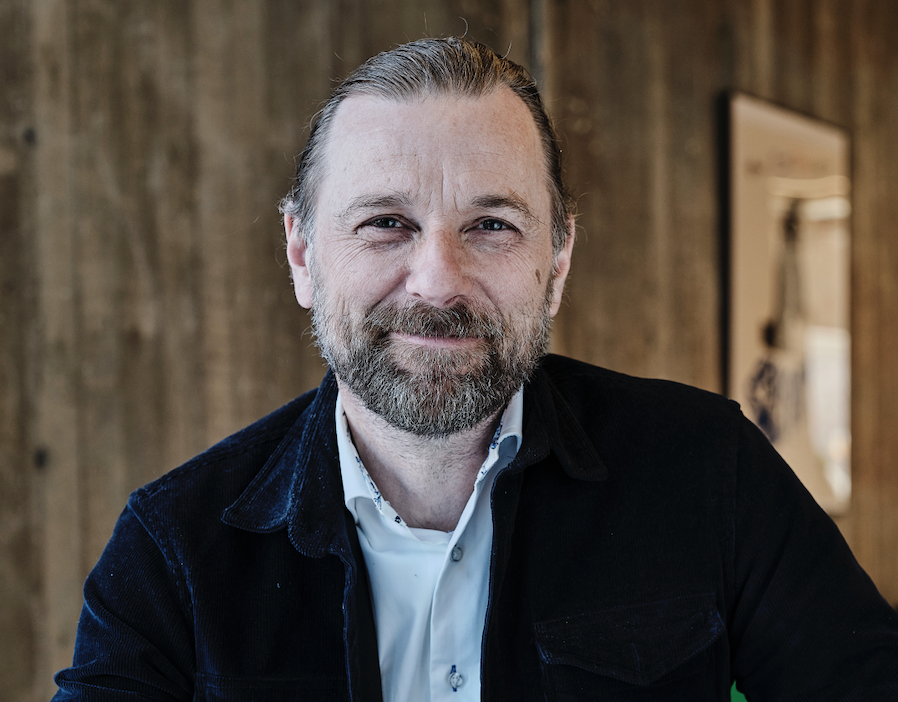Reselo, a Swedish startup, uses a biorefinery approach to isolate raw rubber from birch bark, an abundant waste product of the global pulp, paper, and plywood industry. The IVL Swedish Environmental Research Institute performed a climate impact assessment of Reselo’s renewable rubber and found that, on average, it cut average emissions in half in a general comparison to the most common rubbers on the market.
“You can use it to pretty much replace all standard rubber products,” says Henrik Otendal, CEO and one of the founders of Reselo, a spin-off of KTH Innovation, the innovation arm of Sweden’s Royal Institute of Technology, a public research university in Stockholm established in 1827 which conducts research and education in engineering and technology.
The first application for Resolo Rubber is sneakers and boots. “We are working with big manufacturers: one has already done a prototype,” says Otendal.
Tires are next. Reselo was the winner of a 2023 sustainable tire innovation challenge sponsored by Nokian Tyres, a Finnish producer of tire for cars, trucks, buses, and heavy-duty equipment. The challenge was open for all businesses, students and researchers. Nokian Tyres received almost 50 applications from 18 different countries. In January Reselo was named the winner in the finals event held at Nokian Tyres’ test center in Finnish Lapland. Reselo received a monetary prize as well as the opportunity to explore a business or development partnership with Nokian Tyres.
“We were really impressed with the capabilities and versatility of the material,” Teemu Soini, Head of Innovation & Development from Nokian Tyres, said in a press release. “We believe that Reselo will be one of the steppingstones towards our own goal of having 50% of the raw materials in our tires renewable or recycled by 2030.”
Nokian tires consist of up to 30 different types of rubber, filling material and other ingredients. Reselo aims to initially replace three to four of the rubber qualities. As the cooperation with Nokian and the development continues the aim is to continuously replace additional polymers after the required rigorous safety tests are completed, says Otendal.
Rubber products that do not require safety testing such as footwear, door handles, car floor mats or dashboards can be 100% replaced by Reselo rubber at the outset, he says.
Reselo started as a research project at the Wallenberg Wood Science Center(WWSC) at KTH. Co-founder Thomas Baumgarten had just completed his PhD studies in 2018 and joined WWSC as a post-doc. Supported through a WWSC stipend, Thomas’ task was to valorize birch bark. After almost two years of research, Baumgarten developed a biorefinery process to produce a novel elastomeric biomaterial from birch bark and approached KTH Innovation to evaluate the commercial potential of this new material. KTH Innovation provided guidance and support in market research, business development and IP questions.
In 2020, KTH Innovation encouraged Baumgarten to join the Start-up Climate Action Challenge initiated by Norrsken and Sting to get feedback on the business idea. There he met Otendal and the other founders, Josefin Larsson and Alexander Johnson, and together they formed the Greener Materials team. Encouraged by the positive feedback from Sting and Norrsken , the team founded Reselo in January 2021.
Two months later Reselo received its first funding from Vinnova , Sweden’s Innovation Agency. Since then it made it onto the IVA’s 100 list, which pulls together a wide range of research projects from Swedish higher education institutions with the potential to create value. It also won the Venture Cup start-up competition and joined the Sting Incubate Deeptech program the same year. The company says its patent application was evaluate positively by the Swedish patent office,which found no competing commercial technology. It has secure funding from the Swedish Energy Agency to support process development and scale-up activities. The company is currently raising additional funding. It has been approved for a European Innovation Council grant that will match the private funding it raises. The money will be used to set up a production plant.
The raw material needed to make Reselo’s rubber is abundant throughout the world. A single mill creates 100,000 tons of birch bark residue on average every year, and the forest industry in Finland and Sweden alone produce enough raw material for 200,000 tons of Reselo’s unique rubber, says Otendal. The biorefinery concept Reselo uses is also designed to minimize the environmental impact of the material.
Reselo’s competitors include companies that make rubber from oil derivatives or use recycled traditional rubbers for up to 20% infill. Their limitation is 20% since these infills cannot be cured, says Otendal. Since Reselo Rubber can be cured (vulcanized), it can be used as infill, mixed with other polymers or to completely replace existing rubber, he says.
Since the raw material is residues from the forest industry Reselo’s rubber is also cost effective and can compete on price with existing rubber alternatives, Otendal says. Pulp and paper companies currently burn birch bark for central heating.
Otendal says he sees applications for outdoor equipment, training equipment, rain gear and other types of apparel in future, but for now the Swedish startup is focusing on the two markets with the biggest demand: footwear and automotive.
To access more of The Innovator’s Startup Of The Week articles click here.







